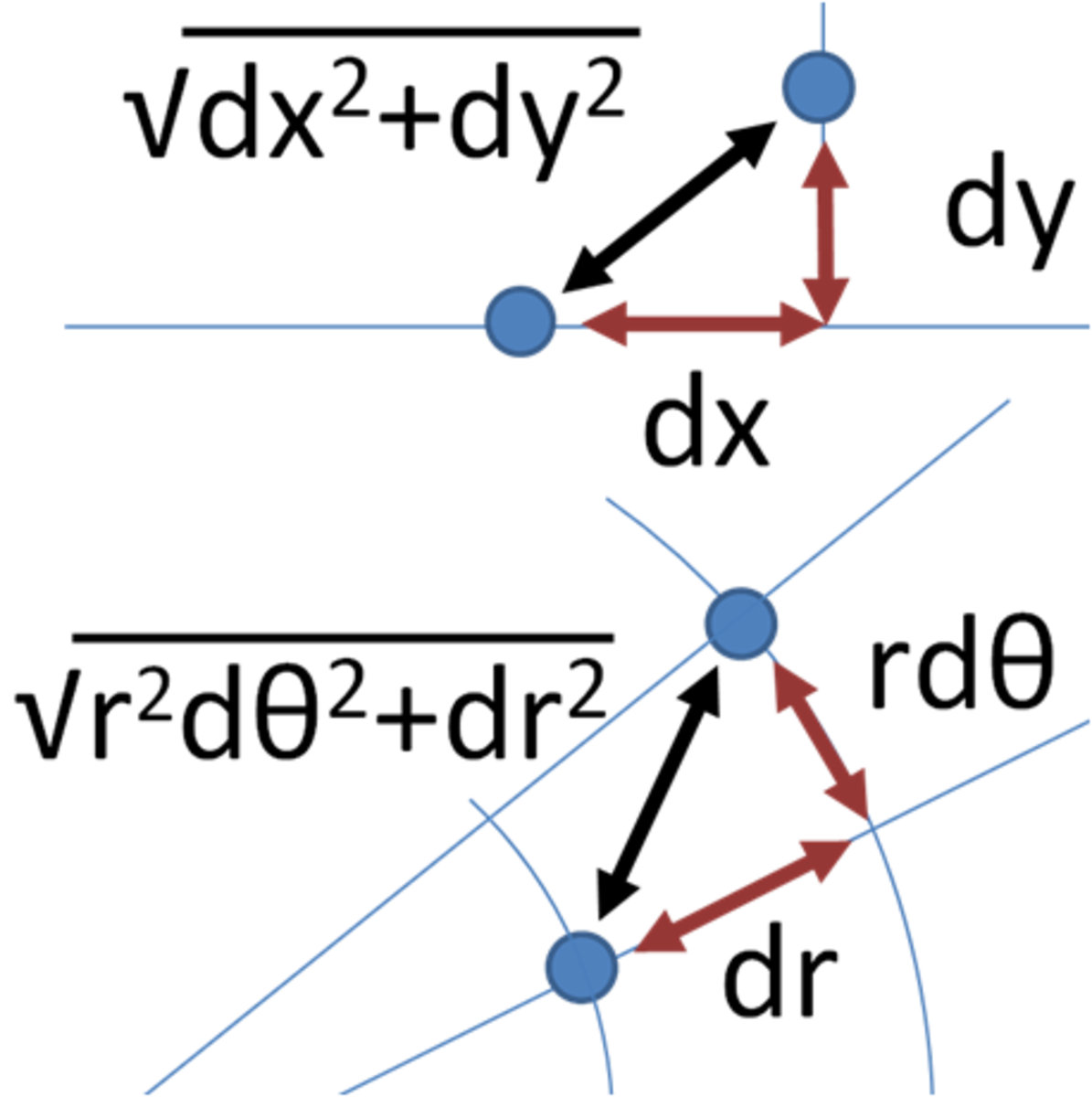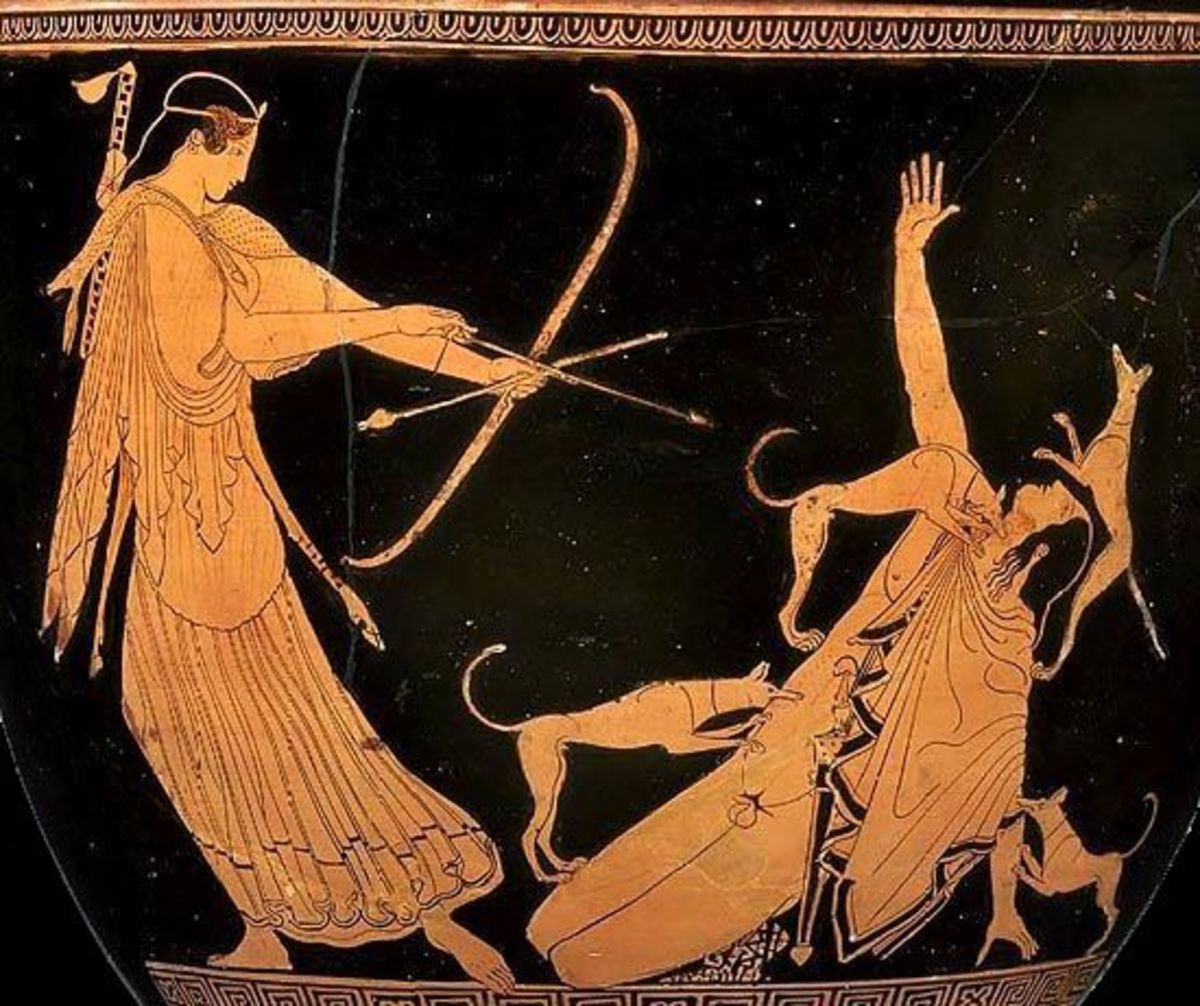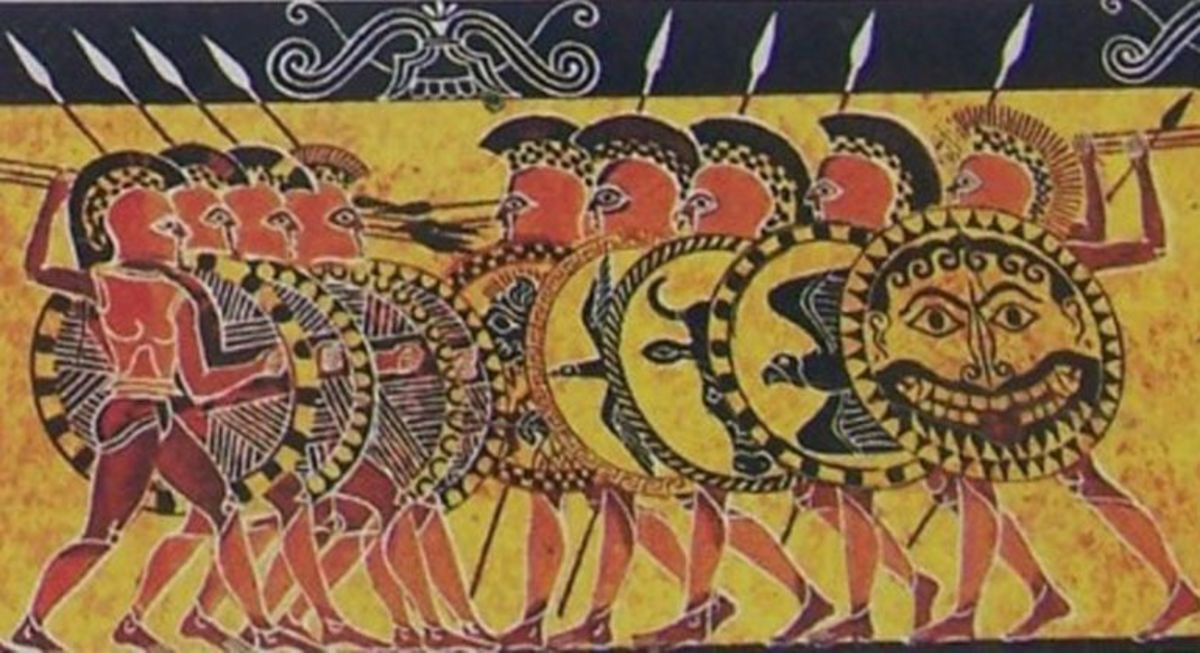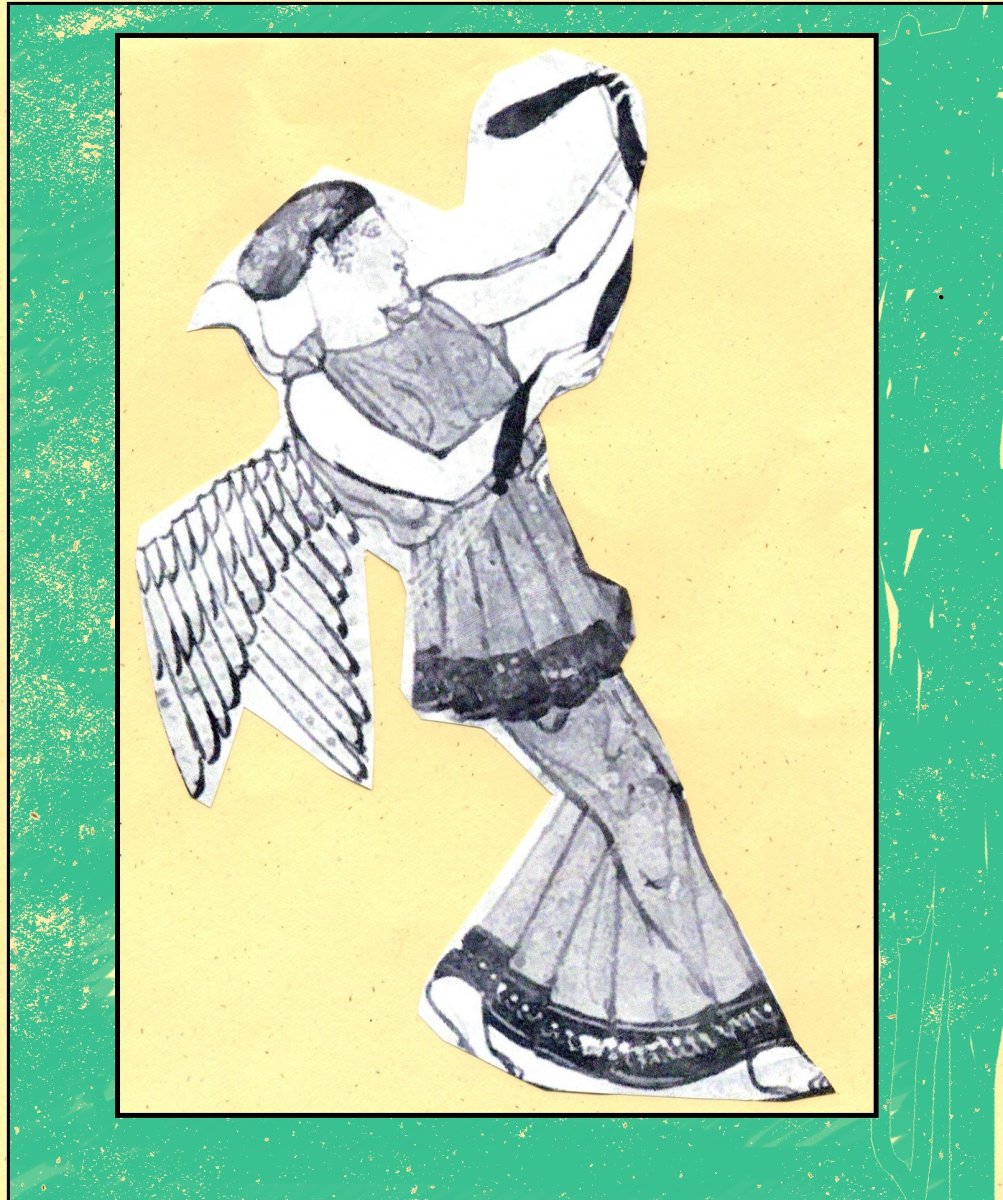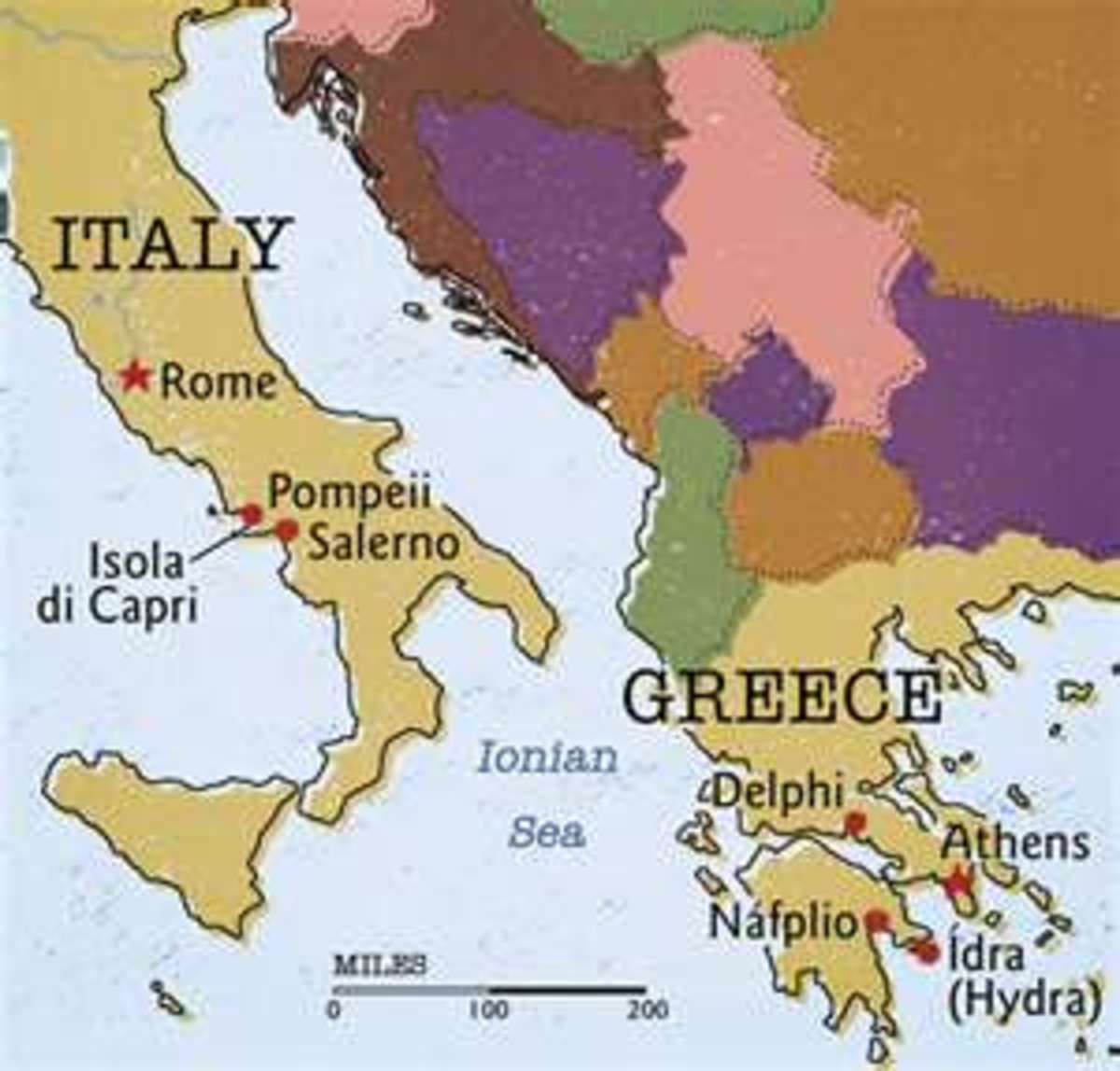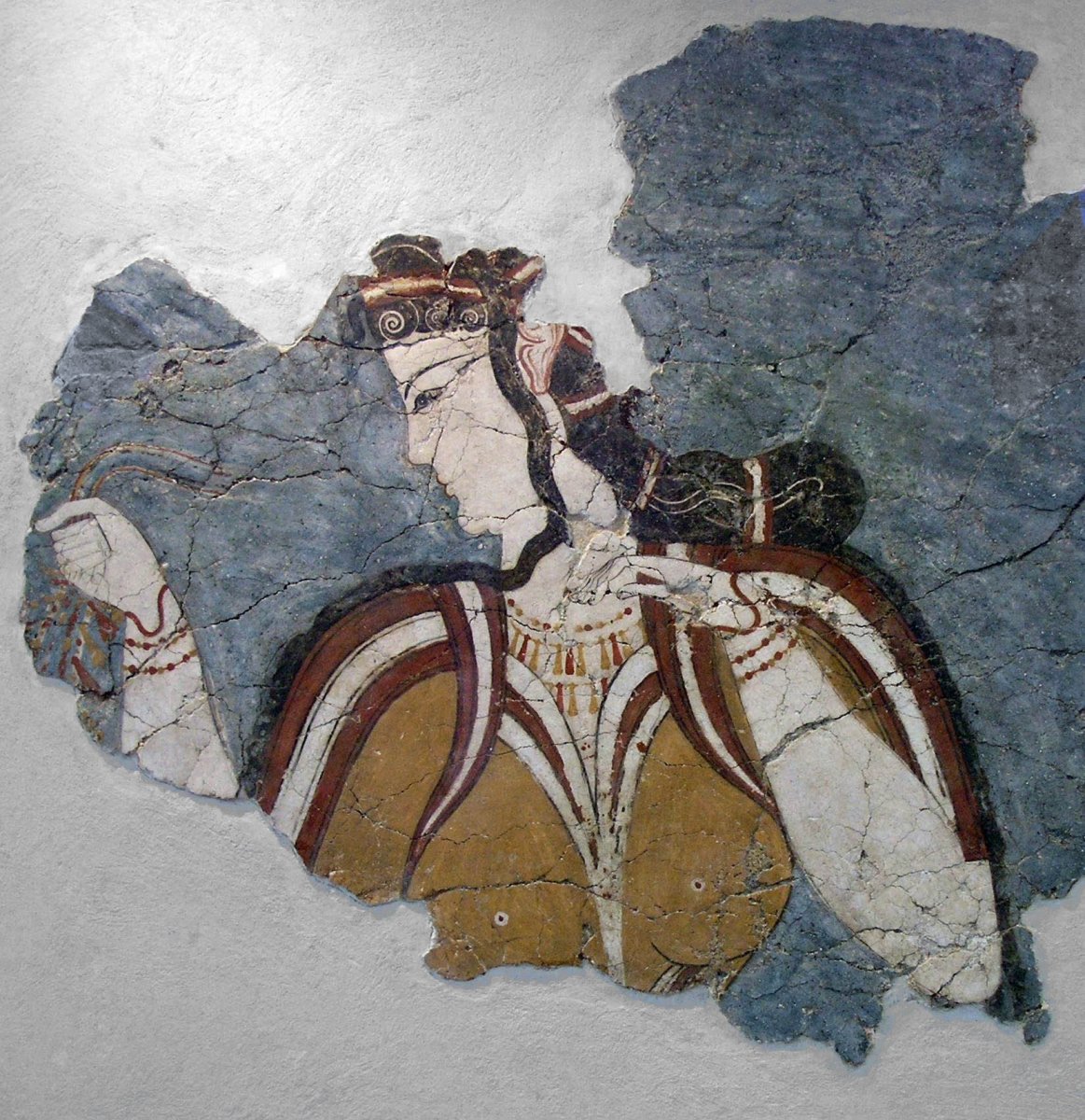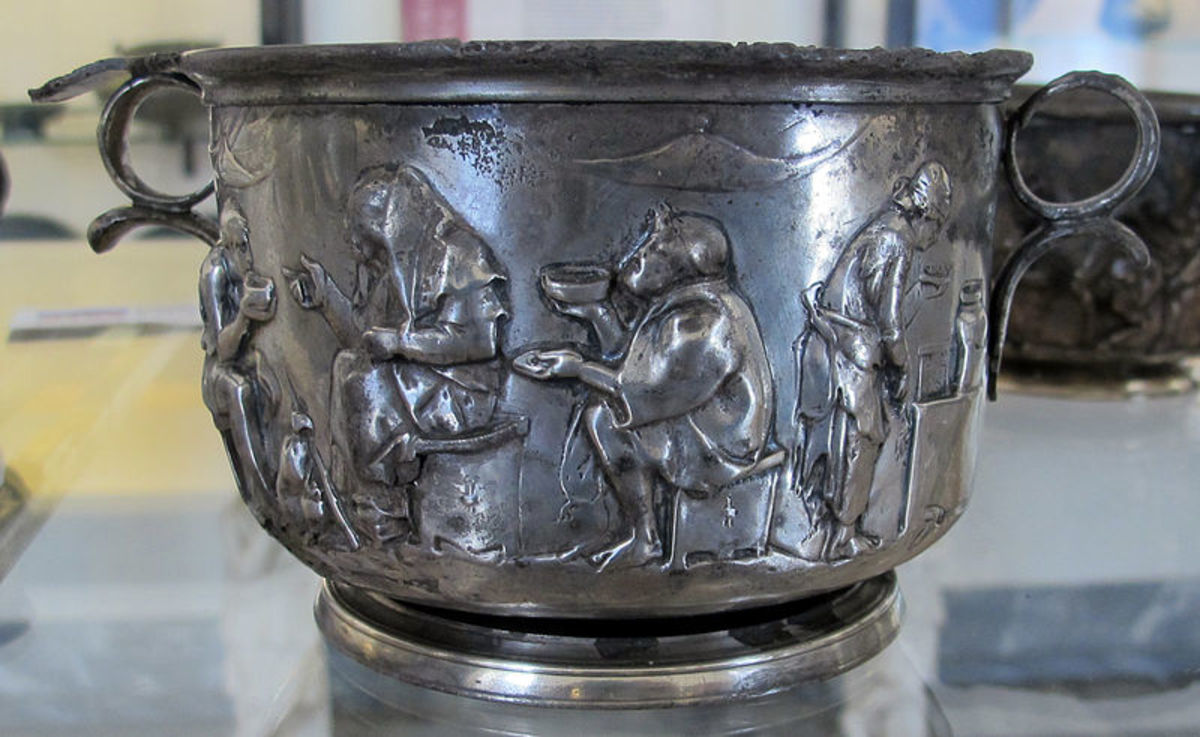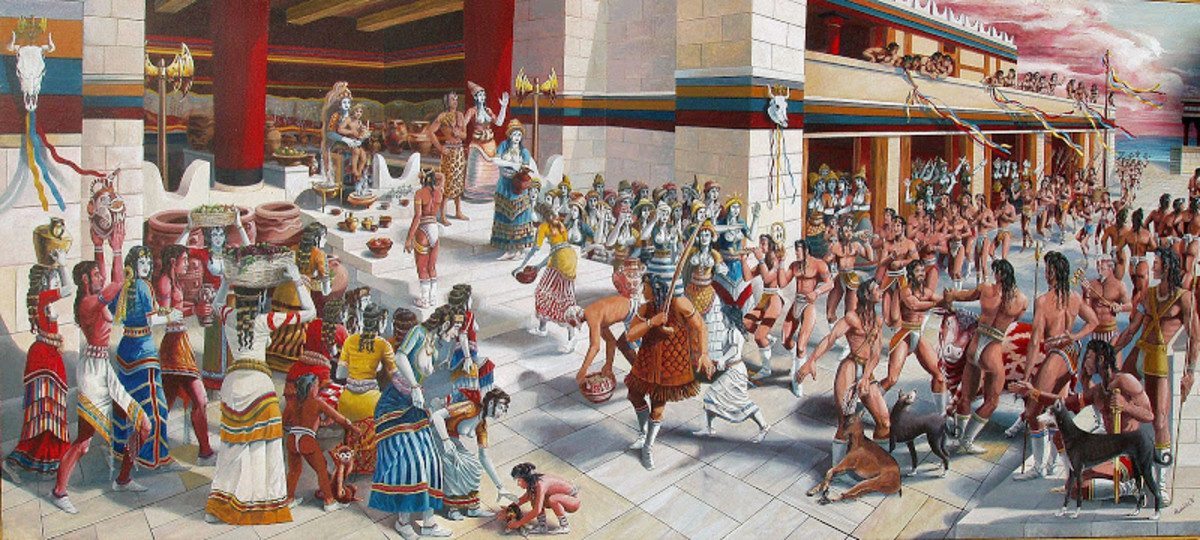- HubPages»
- Education and Science»
- History & Archaeology»
- Ancient History»
- Greek & Roman History
Greek History: Lesson 1--Early Greek Society: Oikos and Basileus
Song of Seikilos--Most Ancient Preserved Song
"As long as you live, shine. Let nothing grieve you beyond measure. For life is short and time will claim its toll."
- The Source of Creative Genius
Discover how to harnass the power of your Subconscious Mind to tap into your INNER GENIUS.
A. The Farming Household, or "Oikos"
During the pre-Classical period, Ancient Greek families were small, like ours. There were no extended kinship networks, as one may have found in tribal societies. A typical household, or oikos, contained anywhere from four to six members and followed a 24-year life cycle. The following pattern was typical:
- phase 1: young husband/wife, widowed mother, kid brother
- phase 2: middle-aged husband/wife, two sons and a daughter; widowed mother dies, kid brother gets married
- phase 3: husdand dies, 1st son gets married and takes over household, 2nd son, still single, remains part of household, daughter gets married and moves out, mother remains part of household.
- etc
Every oikos owned a small parcel of land (perhaps 10 acres) from which it subsisted. A portion may have been devoted to livestock (e.g. sheep, pigs), another portion for grain (e.g. wheat, barley, oats), another portion to olive trees, grape vines, and/or fruit trees. Arable land was a precious and scarce commodity in ancient Greece. The oikos gained and lost land through doweries (when a daughter married into or out of the family). Land was also lost by inheritance if there was more than one son. Households may have owned a slave or two as well, but this was not very common as many households could not generally afford to purchase and/or maintain them.
- Marriage: Men typically did not get married until about 30, whereas women married anywhere from ages 16 to 19.
- Adult Life Expectancy: Using bone studies, the average male life was approximately 40. For women, it was 38 because of high mortality rates during pregnancies. Infant mortality was also high, perhaps as high as 40 to 50%.
Ancient Olive Press
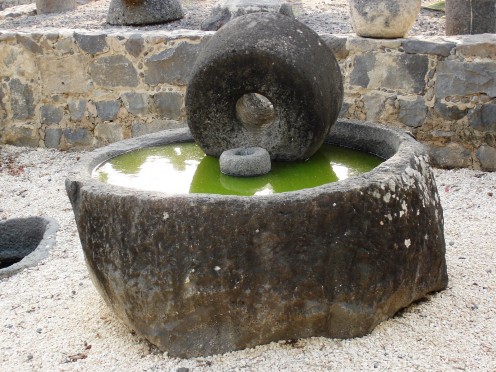
B. The "Autarkic" Farm
The ancient Greeks were a proud people and valued self-sufficiency and independence (both political and economic). The Greek word for this is "autarkia." The oikos household attempted as far as it was practicable to be self-sustaining and generally engaged in a subsistance type of farming. Thus cash crops were typically not grown, although Greek farmers would sell excess grapes/wine, olives/olive oil and wool at the market. Subsistence farming is different than commercial farming, since with regard to commercial, farmers produce almost exclusively for the market. In such circumstances, it is to the commercial farmers advantage to maximize his holdings and production. The autarkic or subsistence farmer, on the other hand, only produces enough to satisfy his annual needs plus a small surplus, since there was no reason to produce more than that. Thus, the autarkic farmer's strategy was to satisfy his immediate needs with the least amount of drudgery. He attempts to minimize labor rather than maximize production. The minimization of labor was important to the autarkic farmer not necessarily because he was lazy, but because labor was a scarce commodity in these small farming communities, which did not have access to large pools of manpower.
The Annual Farming Cycle:
- September: harvest grapes, make wine
- October/November: plow land, sow grain, harvest and press olives
- December/January: prune olive trees and grape vines
- February/March: plow fallow land, open september wine
- April: move sheep to upland pastures
- May: harvest October grain
- June: thresh grain
- July: plow fallow land
- August: relax and take cover from heat
Black Figure Vase Depicting Ancient Agricultural Scenes
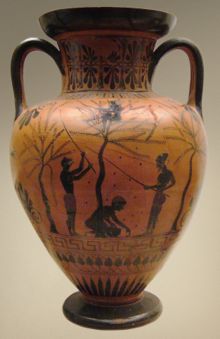
C. Autarkia, the Spirit of the Anicent Greeks
This autarkic farming model made for a very egalitarian society with disparities in wealth being comparatively small. With only certain exceptions (Spartan society), the family oikos was private property, owing NO taxes, tithes, forced labor or other obligations to a social elite. The head of the household made his own decisions on what to grow and when to work, but most importantly, no one appropriated his work product. For the ancient Greeks, autarkia was a major personal value--they didn't have to take any crap, since no one had economic or coercive power over them. It was out of this socio-economic matrix that the early democracies of ancient Greece evolved.
Of course, complete self-sufficiency is not possible, neither in economic, nor in marital, nor in security matters. Thus the ancient Greeks in a kind of balanced reciprocity created stable networks of allied oikoi called "philoi" (conventionally translated as "friends"). At the same time, there existed an opposite principle of competitiveness between oikoi. Often there was mistrust, refusal to cooperate, and disputes over local resources. Thus, among ancient Greek men especially, there was a "never show weakness" mentality. However, when push came to shove, ancient Greek families would gather in ad hoc assemblies to resolve disputes and do justice among its members.
Basileus Returning from Battle
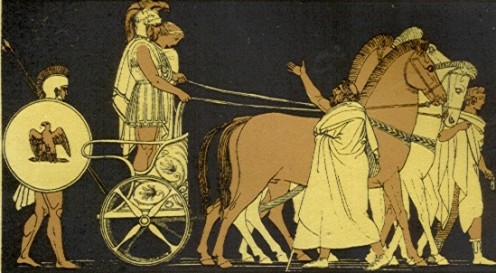
D. The Basileus, or "Man of Influence"
A basileus is a local leader, or village headsman, who has high status and influence in the local affairs of the community of oikoi. He has influence, but not power. Sinceearly Greek communities lacked any central authority to keep the peace, this society was very vulnerable to raiding and petty warfare. Livestock was a target, as was storage, portable metalware, and even individuals were kidnapped for ransom or slavery. It was only natural that these communities would come to rely on the leadership of strong individuals. Such individuals would have outstanding fighting skills and toughness, but also the ability to organize and motivate others. Individuals who distinguished themselves in battle would find themselves acquiring the influence necessary to become a basileus.
A basileus was not, however, a landlord. He did not control the means of subsistence and production, so he had no real economic or coercive power over anyone. He had influence, and to keep it, he had to be generous. If he was not, public opinion would freeze him out, and he would lose his status overnight. Thus, wealth per se did not equate to status; rather, it was wealth generously redistributed that yielded status. For instance, the basileus might use his surplus goods (perhaps acquired during a recent raid) to host a religious festival or to help out during a poor harvest.
Greek Words
- oikos (plural, oikoi): the farming household and basic family unit along with its productive property. Oikoi are (ideally) economically self-sufficient and socially independent units.
- autarkia: self-sufficiency combined with independence. Greek oikoi are ideally autarkic units. Psychologically, autarky is the Greek character ideal, a major value. Honor and self-respect depended on it.
- philos (plural, philoi): a person with whom you have reciprocal bonds of sharing and support. Philia is the abstract noun, as "friendship" is to friend". Oikoi enter into mutually advantageous philia-relationships with one another. Balanced reciprocity prevents one-sidedness that would threaten autarkia.
- basileus: the "man of influence", the social leader in early Greek society. The basileus has influence (people do what he says) but he does not have power (he can't force them to do it if they don't want to). The basileus acquires his reputation and influence through war-leadership and the redistributive use of private surplus. A given locality can have a number of men who have risen to this social status, and one of them may become a "first among equals."

